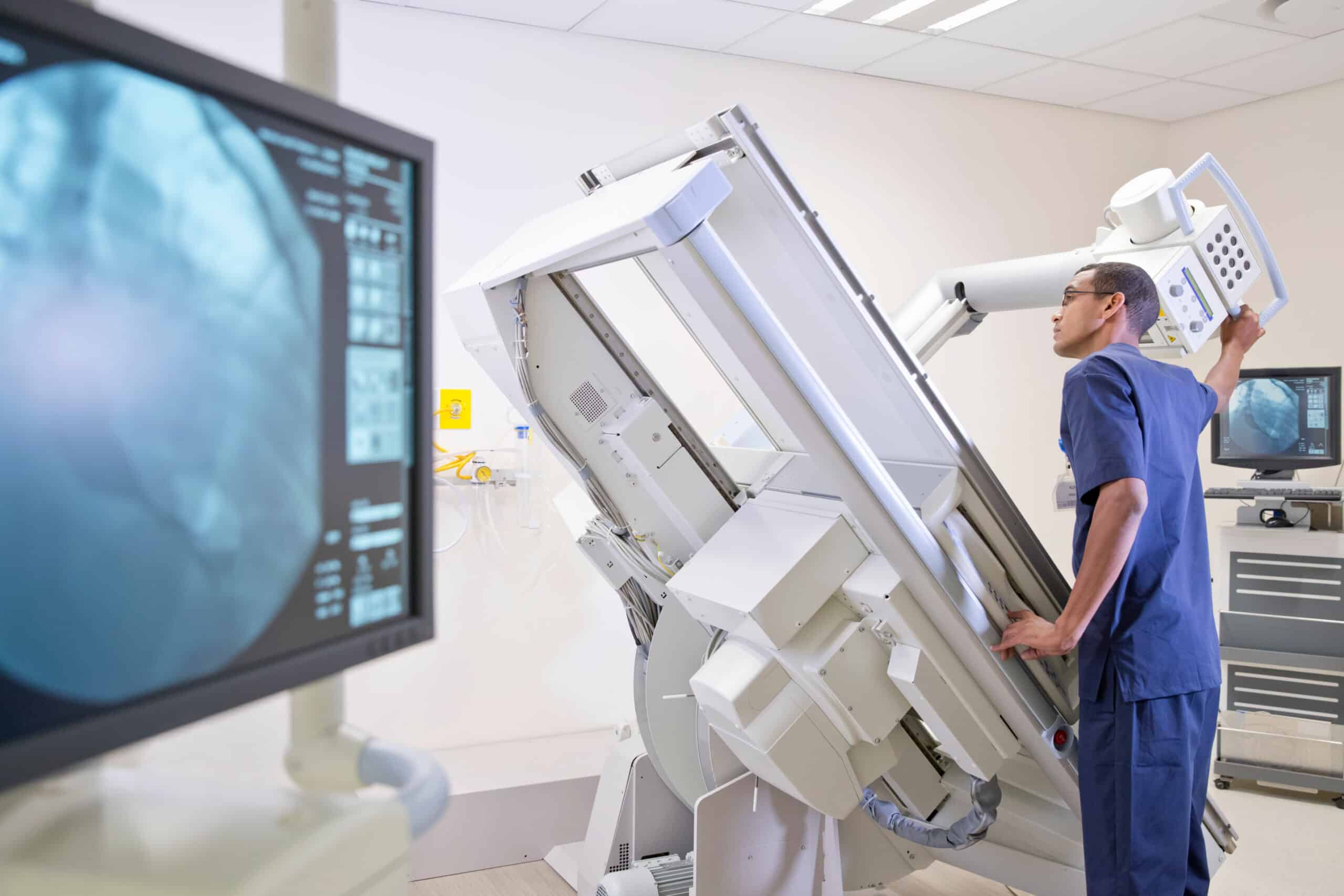
As an allied health professional, finding a healthcare recruiter who supports your travel career is essential. But how do you find an allied recruiter, and how do you know if they’re the best choice for you? In this guide, we cover tips for researching, vetting, and working with allied health recruiters.
An allied travel recruiter is a healthcare staffing professional who helps imaging, laboratory, respiratory, and therapy specialists find short-term or long-term temporary jobs at healthcare facilities across the U.S.
A good recruiter should act as a career advisor—someone who understands your work experience, lifestyle needs, and career goals. They should know why you want to travel and what your preferences are so that they can work with you to find the ideal allied health travel position.
During early conversations, healthcare recruiters screen potential allied health travel candidates to learn whether or not they’re a good fit for the travel company’s available opportunities. This is how recruiters help ensure that they’re setting allied healthcare professionals up for success.
Along with the initial screening, recruiters often ask questions about healthcare experience, career goals, travel preferences, and other factors. The information the recruiter learns from this interview can help them match candidates with allied travel assignments that are the best fit.
Once allied recruiters understand a healthcare professional’s experience, goals, and preferences, they help match their clinicians with relevant, high-quality travel assignments at partnering healthcare facilities.
Because the proper licenses and credentials are required for travel allied healthcare professionals to practice across different states, healthcare recruiters and their support teams provide assistance with navigating the licensing, credentialing, and certifications needed for assignments.
From pay packages and employment verification to housing and transportation, there’s a lot that goes into healthcare travel—even after a job offer has been accepted. An allied health recruiter should assist in managing these details to help with the transition in and out of assignments.
If an allied health clinician has questions, concerns, or needs additional support during or between allied travel assignments, the healthcare recruiter should be there to help. Good recruiters will be an advocate through the entire allied travel process.
It’s possible that issues could arise during an allied travel assignment. Whether it be a scheduling problem, an issue with housing, or a clinical issue, the recruiter and their support team should help resolve any roadblocks that arise before, during, or after a travel assignment.
An experienced allied recruiter knows what healthcare facilities look for in a candidate and should be able to provide advice on potential continuing education opportunities and other ways to advance an allied healthcare career.
It’s essential for recruiters to establish strong relationships with their allied travelers, as well as with the healthcare facilities they work with. Maintaining these connections allows them to present their clinicians with more desirable travel assignments, while presenting facilities with quality laboratory, respiratory, imaging, and therapy specialists.
When allied travel assignments end, healthcare professionals either extend their contracts or look for opportunities in new locations. Whatever the goals, the allied health recruiter should be available to help facilitate these needs.

Having a recruiter is a necessary step to working as an allied healthcare traveler, but how do you find the right recruiter for you? Thankfully, there are several ways to connect with allied recruiters.
There’s a wealth of resources available online to help you find a recruiter. Looking up phrases like “travel allied jobs,” “allied travel recruiters,” or “allied staffing agency” on Google or other search engines is one easy way to find options. Another way to find allied recruiters online is by visiting networking websites like LinkedIn, or other forums for traveling healthcare professionals.
Online reviews are another way to find a good allied healthcare recruiter. Reviews for staffing agencies on Google, Facebook, and other sites can give you a general idea of your options. You might even check out the reviews on recruiter-focused websites like Great Recruiters, where you can find and read reviews for recruiters and their associated staffing companies.
If you already know another travel healthcare professional, asking them for a personal recommendation is a fantastic way to identify potential recruiters. You can learn a lot about your options—good and bad—just by having a conversation about their travel experiences.
Connecting with a healthcare staffing agency is one of the best and fastest ways to find a healthcare recruiter. You can ask any questions you have about their recruitment process, such as what kind of support you can expect and how long it will take to find a travel healthcare assignment.
If you do choose to work with a travel healthcare agency, be sure to keep these factors in mind before partnering with a specific company.
Any travel healthcare company you plan to work with must be properly licensed. Another good indicator that a travel recruitment agency is a quality option is if they have Joint Commission Certification.
Staffing agencies exist at different levels, whether that’s local, regional, or national. Before working with a healthcare staffing company, make sure they have positions available where you’re interested in traveling. You can narrow down your options by presenting an agency with a list of cities or states you’d like to work in. This allows you to verify if they can meet your personal travel goals.
Before you sign on with a healthcare staffing agency, be sure to inquire about the specific process of going on an allied health travel assignment. You should be aware of all details throughout the process, including hiring, contract, and pay and benefits.
There are many travel healthcare agencies out in the market today. However, not all of these agencies offer the same quality of recruitment services. Evaluate your options by taking a look at online reviews. Ideally, you should look at several reviews for each staffing agency so that you can get a good idea of general trends, rather than relying on one-off experiences to inform your decision.
Any reputable allied health agency should be transparent about your salary and benefits, including pay rates, housing stipends, health insurance coverage, retirement, and other employment perks.
Not all healthcare recruitment agencies offer the same allied health jobs. Your healthcare travel recruiter should go through the positions available across both small and large cities so that you can find the allied travel jobs best suited to your success.
A good healthcare recruiter understands your personal preferences regarding when and how often you want to take an assignment. Your recruiter can help you understand how your benefits and options can work with your need for time off between assignments and help you get plan for your next assignment.
There are certain signs you can use to identify whether a recruiter is a good fit. Canned responses, unrealistic promises, or otherwise unpleasant interactions are all red flags that don’t bode well. You should also ask whether their agency support team is offshore or located in the U.S.

Asking questions at the beginning of your relationship with an allied health recruiter can save you from wasting time on a connection that may not be right for you. When you ask the right questions, you can feel more confident that this person will be able to support you in your allied travel career.
Once you know what you’re looking for with an allied health recruiter, there’s still the matter of selecting the right person for your needs. Here are a few things to keep in mind.
Interviewing multiple professionals from different healthcare staffing agencies can give you a better idea of the differences between them and can help you feel more confident in the choice you ultimately make. Consider the rapport and connection you have with the recruiter. Also, compare and contrast the services their agency offers, how responsive they are, and how often they’re able to provide you with new opportunities.
Come prepared during every conversation with a potential travel healthcare recruiter by having a list of questions to ask them. Record their answers, then compare them with the answers you received when speaking to allied recruiters from other staffing agencies.
Whether or not you get a good feeling from a conversation with an allied travel recruiter can be a strong indicator that they’re the right (or wrong) choice. If someone doesn’t seem upfront, or if you don’t believe they’d be a good match for you, there are other options out there.
With more than 25 years of experience in the healthcare staffing industry, TRS Healthcare is the trusted advisor that will prioritize your success. We’re Joint Commission Certified, and we’ve been voted as a great place to work by both staffing industry and local business organizations.
TRS Healthcare works with a variety of allied healthcare professionals in respiratory, imaging, laboratory, and therapy specialties to find meaningful career opportunities across the U.S. Our dedicated recruiters are happy to support you on your travel journey, and they’ll go above and beyond to ensure you have an allied travel career that meets your needs.
If you’re interested in working with a TRS Healthcare recruiter, apply with us now or search our current jobs!